How much does it cost to build a house in Poland?
How much does it cost to build a house in Poland as a UK expat? Find out in our essential guide, covering everything you need to know.
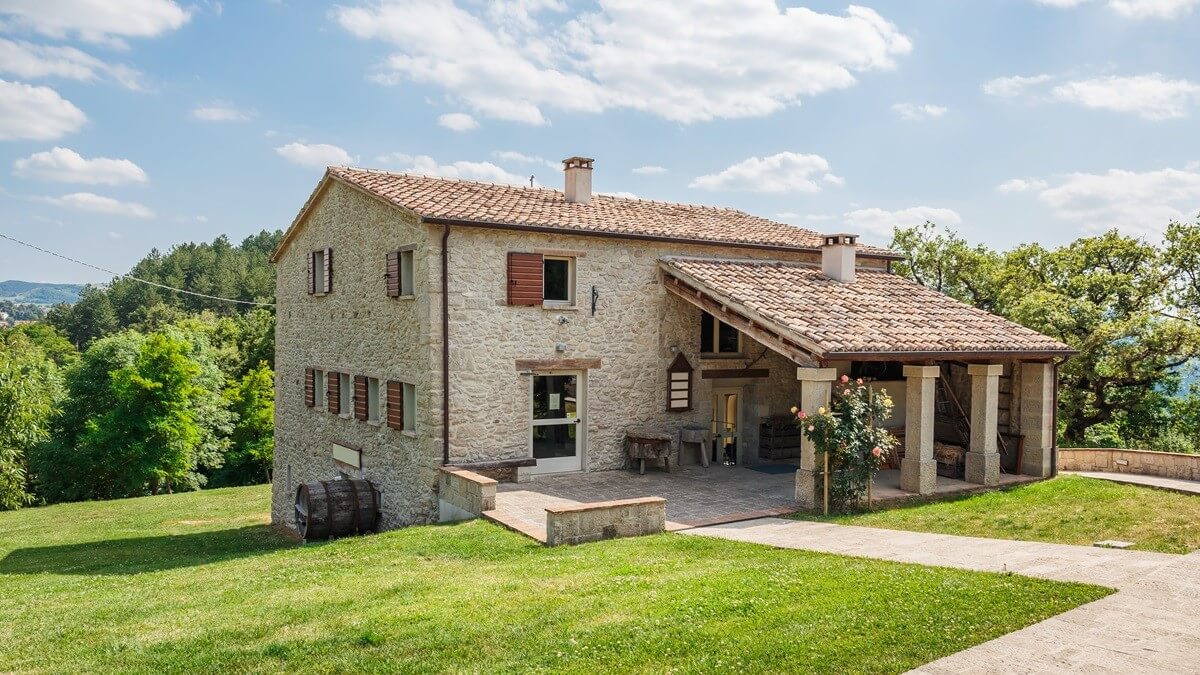
Love the idea of building a house in Italy? Many Brits dream of creating their dream home in the beautiful Italian countryside or even in one of the country’s stunning cities.
But turning your dream into reality will often come down to money. In this guide, we’ll cover everything you need to know about the cost of building a house in Italy as a UK national.
This includes essential info on the process, including building costs in Italy and the different fees and taxes you’ll need to budget for.
We’ll also look at the best way to pay for overseas building work in EUR, using low-cost solutions such as the Wise account.
There are many reasons why you might want to build a house in Italy.
For starters, it offers a chance to build your dream house, to your exact specifications, in the perfect location.
It could also be cheaper to build your perfect home rather than buy a property abroad, especially in expensive areas.
Yes, you can buy property or land in Italy as a UK citizen. You don’t even have to be living there as a legal resident.1
You should also be entitled to build a property on the land you buy. But crucially, only as long as the plot is designated for building purposes - and not earmarked for anything else. We’ll look at that in more detail later in this guide.
Love the idea of tackling a self-build project and managing it all yourself? You can do this in Italy, but it will be necessary to appoint some professionals along the way. For example, your house plans will need to be drawn up by a fully qualified architect or other professional in order to get a building permit.2
When building a house abroad, it’s also strongly recommended to seek as much professional advice as you can throughout the building process.
First things first - you need to find a plot of land to build on. In urban areas of the country, a building plot is known as a lotti. When you’re searching online for lotti to buy, the words to look for are terreno edificabile - this means building land. What you don’t want is terreno agricolo, as this means agricultural land.3
You might want to use a local agent or one specialising in overseas property and land sales. Or you can start your search online, using sites such as:
An important thing to check when searching for plots of land is whether it is considered suitable for building by the local council (Comune). You’ll need to consult the Municipal Regulatory Plan (Piano Regolatore Comunale), which outlines the development plan for the area.3
The process of purchasing land in Italy usually looks something like this:4
You can build on your own land in Italy, but only if the following conditions are met:2
An additional thing to check is the Building Index for the municipality in which the plot is located. This will set out the specific size of property you’re permitted to build there, along with any other restrictions and conditions.
You may find it difficult to get permission to build on undeveloped land, if it isn’t already designated for building on. Some land is designated as terreno agricolo (agricultural land) and you won’t be able to build on it.
For other plots, you may be able to contact the local planning department to find out about the potential for building on it.
Bear in mind though that rural plots can be difficult to build on, as the terrain may not be suitable and the land may not be connected to mains power, water and sewage systems. Access for construction vehicles may also be a problem.
In order to build a house in Italy, you’ll need to apply for a building permit. You’ll need to apply for this at the Sportello Unico dell'Edilizia within the municipality your plot of land is located in.
When submitting the application, you’ll need to provide the following supporting documents (among others):2
It’s important to check with the local planning authority what exact documents you’ll need, to avoid any delays.
It can vary considerably depending on the scope and complexity of the project, and the efficiency of the planning department in the municipality.
But generally, you can expect planning permission for a new house build to take anywhere between 2 to 6 months to come through.5
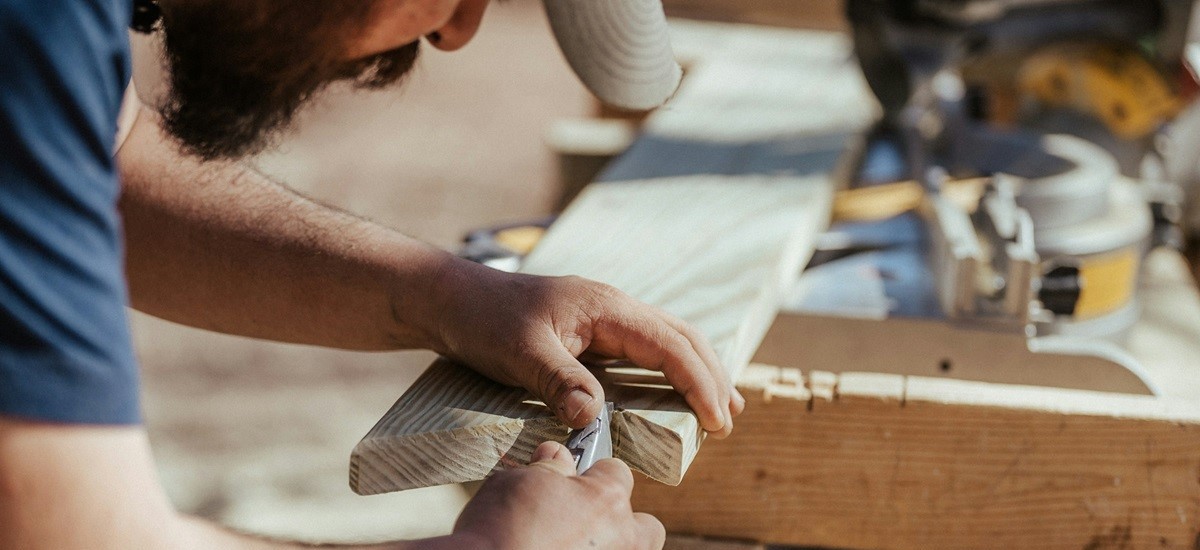
Now we come to the crucial issue of how much it will actually cost you to build your dream home in Italy.
There are many different fees and taxes to factor in, and lots of people to pay including your architect and building contractors.
Architect’s fees in Italy will vary depending on the specific project. Some architects may charge a fixed fee, an hourly/daily rate or a percentage of the overall construction costs.
As a rough guide, you can expect architect’s fees to be between 10% to 15% for a residential project.6
Building work in Italy costs broadly the same as in the UK, although it depends what you’re building and where in the country you are.
The cost of labour and materials did spike by 25% in 2022,7 while in the UK they rose 15% in the same year.8
The average salary for a builder in Italy is €16 EUR (£13.48 GBP) an hour, or €34,300 EUR (£28,892 GBP) a year.9
You can expect to pay around €1,250 to €3,000 EUR (£1,052 to £2,527 GBP) in building permit application fees, based on a planned property of around 100 square metres.2
When you buy land to build on in Italy, you’ll need to pay the following taxes:2
Now, let’s take a look at some of the challenges you may need to overcome when building a house in Italy.
A building permit is essential before you can legally build on a plot of land you own.
In Italy, the main permit you will need to build a new house is the concessione dell’edificabilità.
This gives you permission to build a property in line with the region’s zoning plan and conditions.
You may also need:10
To apply for your building permit, you’ll usually be asked to submit the following:2
Before starting any construction work, it’s important to check that the terrain is stable enough for excavation and building. You may be required to commission a geological report. You may also need to conduct surveys to assess any seismic or hydrogeological risks or constraints.2
It’s important to check whether there are any restrictions or laws in the local municipality governing how your new building should look.
For example, you may be limited to certain paint colours for the facade of your new building. This is the case in Rome, where authorities aim to maintain the ancient appearance of the city by mandating that properties must be painted according to a set and limited palette of colours.11
If you’re not fluent in Italian, it’s a smart idea to appoint a multilingual project manager - or hire a translator. You should also aim to get any agreements in writing, and have those agreements translated into English. Otherwise, the risk of miscommunication and misunderstandings is high - and this could derail your project.
You’ll also need to think about how you’ll pay your contractors, builders, tradespeople and architects in euros. You’ll need to make sure you’re not losing out to currency conversion, so opening a local bank account could be a good idea.
Alternatively, open a Wise account online and you can make fast payments in EUR for low fees* and mid-market exchange rates. It’s a low cost option that could save you money throughout the project.
You’ll need to speak to your building contractor about available payment methods, but bank transfer is likely to be the most commonly accepted.
It’s recommended to do some research on the cost of construction materials while putting together your budget.
You’ll also need to speak to your building contractor about available payment methods, but bank transfer or cash are likely to be the most commonly accepted.
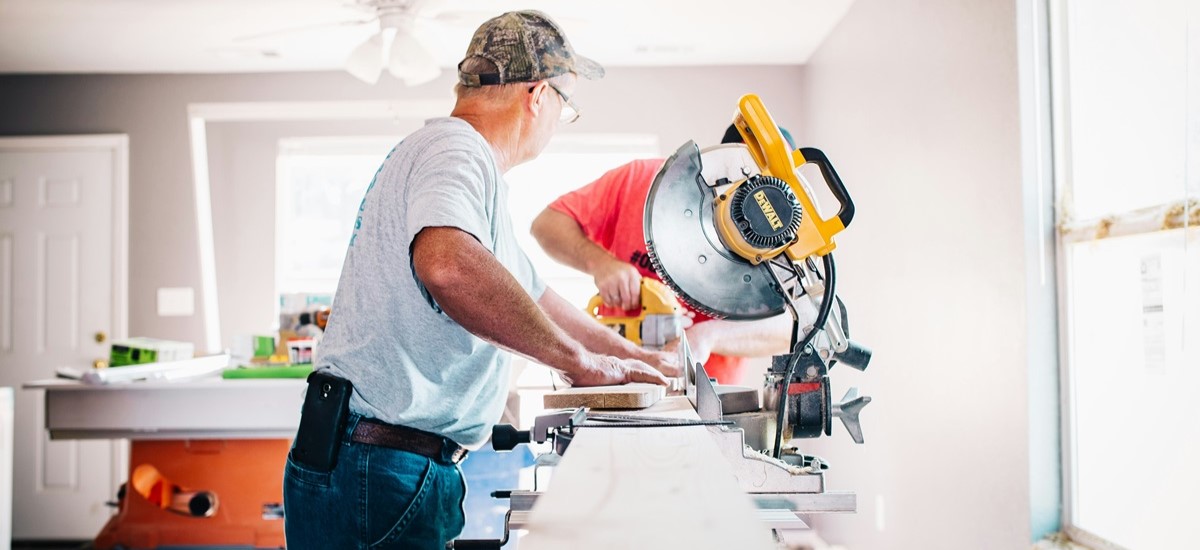
The amount you’ll need to build a house in Italy varies considerably depending on where you’re building, what size property and the specifications of the project.
As a ballpark figure, you can expect to pay roughly €2,500 EUR (approx. £2,105.90 GBP) a square metre to build a house in Italy.12
So to calculate your construction costs, you’ll need to multiply this by the square metre size of your planned property.
You’ll also need to factor in architect fees, building permit application fees, taxes and other associated costs.
It isn’t mandatory to have an Italian bank account in order to build a house in the country. However, you could find it difficult to cover your costs and pay international bills without one.
There are a few different ways you can pay expenses in Italy, while still based in the UK.
You can use your bank, but bear in mind that there may be relatively high fees related to sending money overseas. You may also lose out to currency conversion, as banks often add a margin to the mid-market exchange rate.
Another option is to use a specialist money transfer service like Wise. Open a Wise account and you can use the dedicated service for large amount transfers to send money safely and securely overseas.
Open a Wise account at the start of your project and you’ll be able to quickly and easily send money between the UK and Italy. This is a good way to keep currency exchange costs down, and make sure everyone gets paid on time.
There’s even dedicated support for large amount transfers, essential when you’re buying land or property, or paying large bills.
It’s fast, low cost and guarantees you mid-market exchange rates with no margin on top*.
It all depends on the complexity and size of the house you’re building, but you should plan for at least 12-15 months of construction work. You also need to factor in time to find and buy your plot, and to complete the admin to get your building permit.
The size of property you’ll be permitted to build will be set by the local authority, according to its zoning plan. There may also be height limits, as well as rules on proximity to other houses.
There aren’t any specific taxes which apply to foreign nationals owning property in Italy. However, if you own a house there, you may have to pay property taxes like a local. For example, an annual property tax known as IMU (Imposta Municipale Unica).13
📚 Read: Overseas property and tax
While foreign nationals are free to buy property in Italy, owning a home doesn’t entitle you to a visa or allow you to reside in the country permanently.
If you’re interested in moving to Italy, you’ll need to look into the different visa options to find the right one for you, and apply for permanent residency through the usual routes.
While it depends where and what you buy, the average house price in Italy is around €380,000 EUR (£319,530 GBP) for a 2,000 square-foot-home.14
It all depends on the area you buy, as well as how much you pay to buy or build a property. But generally speaking, the Italian real estate market is considered stable, with lower property prices than some other European countries - along with attractive rental yields.15
However, you’ll need to do careful research before investing there.
Prefab homes in Italy can be more affordable than other kinds of property. To buy one will cost around €1,500 to €2,000 EUR per square metre.16
Sources used:
1. GOV.UK - living in Italy and buying property as a UK citizen
2. Idealista - what you need plus conditions to build on land in italy
3. Property Guides - buying land to build on in Italy
4. LawyersItaly - buying land in Italy
5. Just Landed - planning permission in Italy
6. Property Organiser - estimate of Italian architect fees
7. Global Wood - construction costs in Italy
8. Build Partner - latest UK construction material costs
9. Economic Research Institute - average house builder salary in Italy
10. DLA Piper - Italy licences and permits
11. Steemit - limits on paint colours in Rome
12. Property in Sicily - estimate of building costs in Italy (Sicily) per sq m
13. Giambrone - Italian property taxes
14. Property Guides - average house price in Italy cheaper than Spain and Portugal
15. Italy Magazine - state of Italian real estate market
16. Idealista - prefab house costs in Italy
Sources last checked on date: 30-Aug-2024
*Please see terms of use and product availability for your region or visit Wise fees and pricing for the most up to date pricing and fee information.
This publication is provided for general information purposes and does not constitute legal, tax or other professional advice from Wise Payments Limited or its subsidiaries and its affiliates, and it is not intended as a substitute for obtaining advice from a financial advisor or any other professional.
We make no representations, warranties or guarantees, whether expressed or implied, that the content in the publication is accurate, complete or up to date.
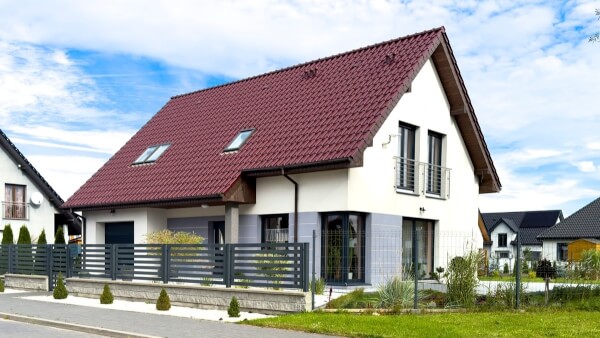
How much does it cost to build a house in Poland as a UK expat? Find out in our essential guide, covering everything you need to know.
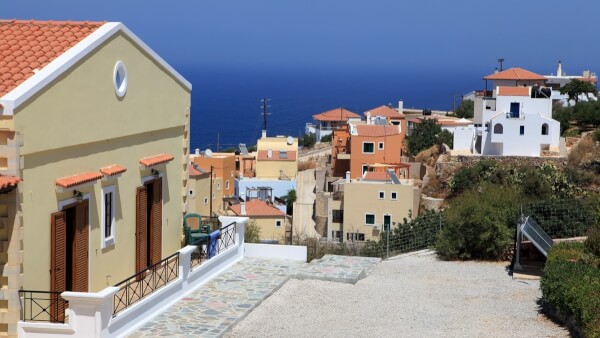
How much does it cost to build a house in Greece as a UK expat? Find out in our essential guide, covering everything you need to know.

Read our comprehensive guide to buying a house abroad, including how to arrange finance for overseas property purchases.

Read our roundup of 8 of the best places to buy land in the world as a Brit, looking at average land prices, buyer’s costs and more.

Read our guide to selling property in India and bringing money to the UK, covering taxes, transfer methods and other essential information.

Read our essential guide to investing in US farmland from the UK, including rules on foreign land ownership, average prices per acre, and much more.